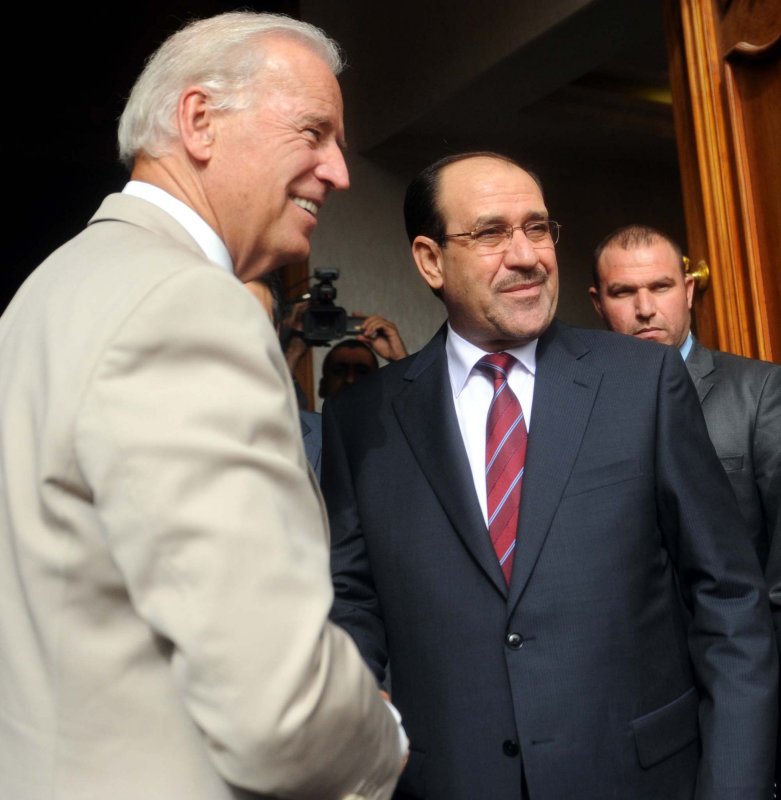U.S. Vice President Joe Biden (L) shakes hands with Iraq's Prime Minister Nuri al-Maliki in Baghdad on July 4, 2010. UPI |
License Photo
BAGHDAD, Oct. 5 (UPI) -- Despite backing for a major Shiite political party, Prime Minister Nouri al-Maliki doesn't have a ruling majority in Baghdad, the country's vice president said.
Maliki won key support last week from members of the Sadrist slate, the party loyal to Shiite cleric Moqtada Sadr. Sadrists took around 10 percent of the seats in March parliamentary elections, putting the incumbent prime minister within a few seats of the 163-seat majority needed to form a new government in Iraq.
The announcement came last week from the grand Shiite slate, the National Alliance. Members of the allied Supreme Islamic Iraqi Council didn't attend the announcement, however.
Adel Abdul Mahdi, the Iraqi vice president and SIIC favorite for prime minister, said in a statement released to London's pan-Arab daily Asharq al-Awsat that there remains "competition to obtain the required majority" in parliament despite the support for Maliki.
Ammar al-Hakim, the influential clerical leader of SIIC, said he opposed the Maliki nomination and was considering talks with the secular Iraqiya slate. Sadrist sources told the London news agency, meanwhile, that Sadr gave Maliki until Oct. 15 to form a ruling coalition.
Iraq holds the record for going the longest between national elections and forming a government. Iraqiya won the election by two seats, but fell well short of the majority needed to form a new government alone.
Iyad Allawi, the leader of Iraqiya, arrived in Monday in Cairo to discuss the political stalemate in Iraq.





